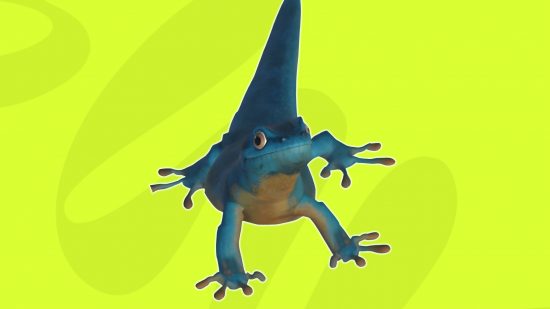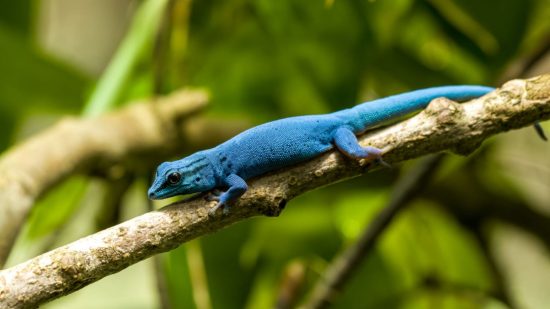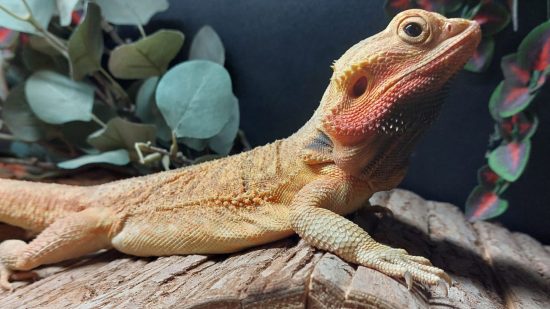Building on a previous news piece about Electric Blue: Gecko Dash by OtE Productions, I’m here to give you some more information about the pet trade, and what we as fans of lizards and exotic animals on the whole can do to help these little guys.
If you’ve not heard of the studio behind Electric Blue: Gecko Dash, it’s On the Edge, a not-for-profit multimedia organization concerned with conservation. The studio has other games focusing on endangered animals, too, Save the Purple Frog and Kākāpo Run. On the Edge’s mission is to raise awareness for these animals, introduce them to more people, and educate people as they go with the help of fun and informative games.
Electric Blue: Gecko Dash is available now on iOS and Android, for free. In it, you run around as the adorable blue gecko in question and evade evil hands as you flee and forage for bugs to top up your energy.
Known as William’s dwarf geckos, these bright blue lizards are native to Kimboza Forest in Tanzania, preferring pine trees. Their biggest threat, aside from deforestation, mining, and wildfires, is the illegal pet trade, especially in the UK. In October 2023 alone there were an astonishing 145 seizures of endangered animals. If you want to see these guys for real and in a safe place, some are arriving at London Zoo this spring – here’s a post from the ZSL Edge of Existence highlighting the species. I’m overdue a visit to the reptile house, so maybe I’ll see you there.
Whereas there are some geckos pop up listed as CB (captive bred), it’s the lizards listed with WC or FC (wild caught and field caught) that are the issue. In case you’re not sure, it means that people have gone out and taken animals from their homes in the wild and then transported them back to other countries for sale to civilians. Now, this raises plenty of concerns, namely about the safety of the lizards that are now in random places and probably with the wrong husbandry, diet, and housing.
You may argue that these lizards are in fact safer in a controlled environment – and where that may be true in that they won’t get eaten by birds, it’s still wrong on many levels. Taking them out of the wild disrupts the ecosystem, disturbs the breeding patterns of the geckos, and likely harms the mental and physical health of the animals themselves.
I would also like to say that animals are near and dear to my heart. I own a bearded dragon – she’s adorable, called Peapod, and you can see her above – who was bred in captivity and I made sure to research where she came from and how she was raised. While I, of course, absolutely love my pet, I do still wonder as to the ethics of owning a species originating in Australia over here in grey-skied London.
Getting back on track, what can we do to help, and how is On the Edge working to raise awareness? Electric Blue: Gecko Dash invites you to rethink the famous phrase coined by Pokémon, ‘gotta catch ‘em all’. While everyone loves collecting cute critters, in reality, it’s not a good thing at all.

Wildlife crime, defined as “any action which contravenes current legislation governing the protection of wild animals and plants”, grows each year and is an unfortunately highly lucrative trade. It even ranks as the fourth largest international crime – thanks to Interpol for that tidbit. Our UK government pledged £7.2 million to the Illegal Wildlife Trade Challenge Fund back in 2021 – though this did not go very far considering how massive the industry is.
The fact remains that endangered species are still brought to the UK (and other countries) illegally, and stopping this will be a monumental task. Millions of exotic animals are kept as pets, including primates, reptiles, and birds – a lot of which are not legal.
If you would like to find out more information, you can check out On the Edge’s site here. You can also find out about the Illegal Wildlife Trade Challenge Fund here. You can adopt animals through the WWF here, adding funding to species that need it most.


